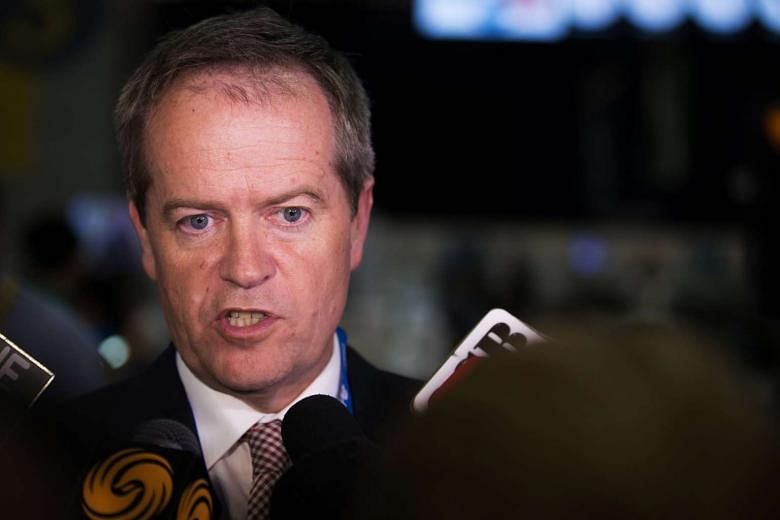SYDNEY (REUTERS) - Australia's main opposition Labor Party said on Wednesday (Oct 21) it was dropping its final objections to the passage of a landmark free trade agreement with China, clearing the last impediment to its ratification before the end of the year.
China and Australia sealed the trade agreement last year, significantly expanding ties between the world's second-largest economy and one of Washington's closest allies in Asia.
The deal, which Australia called the best ever between Beijing and a Western country, will open up Chinese markets to Australian farm exporters and the services sector while easing curbs on Chinese investment in resource-rich Australia.
Centre-left Labor had held up passage of the deal through parliament over what it said was a lack of protections for Australian workers and issues with the visa regime for foreign workers. Powerful trade unions aligned with the party fiercely oppose the bill.
Labor leader Bill Shorten said the party had negotiated an agreement with the government to support the bill after securing sufficient legal safeguards and protections for Australian jobs, wages and work conditions.
"I am pleased today to announce that ... Labor now has achieved what we believe to be satisfactory legal protections which weren't previously proposed, which means that Labor can now support the speedy passage of the China-Australia Free Trade Agreement," Mr Shorten told reporters in Canberra.
China is already Australia's top trading partner, with two-way trade of around A$150 billion (S$151.62 billion) in 2013. On Monday they witnessed 14 commercial agreements between companies worth potentially more than A$20 billion.
Australia needs China's help to transition from a reliance on exports of minerals such as coal and iron ore to expanding its food and agricultural exports to a growing Asian middle class, moving from a "mining boom" to a "dining boom".
Once the agreement is fully implemented, 95 per cent of all its exports will enjoy duty free entry into China, Australian officials have said.
The deal was seen as a key achievement of former Prime Minister Tony Abbott, who was ousted in a party coup last month following months of infighting and poor polling, alongside free trade agreements with Japan and South Korea.
Swift passage of the bill is likely a top priority for new Prime Minister Malcolm Turnbull, who must take Australia to elections before the end of 2016.

